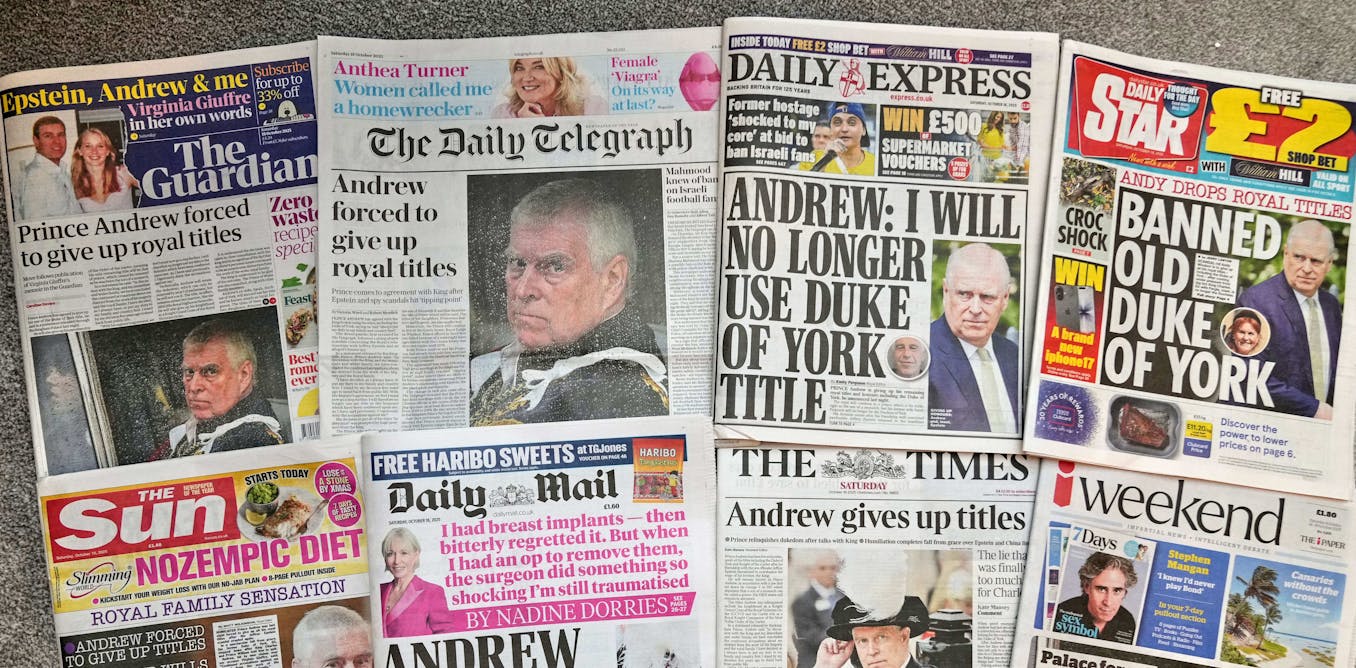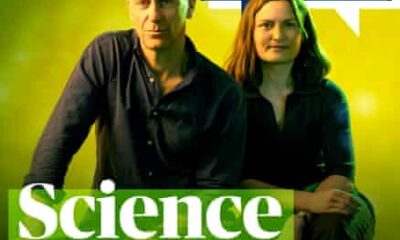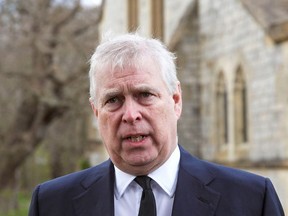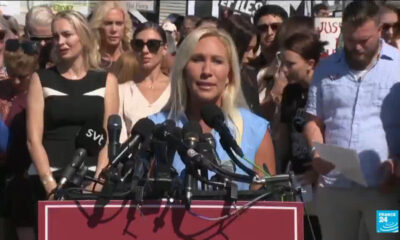Politics
Prince Andrew’s Titles Remain Despite Recent Announcement

Prince Andrew has stated he will “no longer use my title or the honours which have been conferred upon me,” indicating a personal decision to step away from his role as the Duke of York. This announcement comes amid ongoing scrutiny of his connections to the late Jeffrey Epstein, a convicted sex offender, and allegations made by Virginia Giuffre, who accused Andrew of sexual assault when she was 17. While Andrew denies these claims, the fallout from his controversial past continues to affect his status within the Royal Family.
In 2019, Andrew’s attempt to clear his name during an interview with the BBC’s Newsnight resulted in widespread criticism. The public reaction to his statements was largely negative, leading to his removal from public duties just days later. Following the backlash, he resigned from patronages of over 200 charitable organizations, effectively distancing himself from formal royal responsibilities.
Recent polling data from June 2020 indicated that around 60 percent of Britons believed Andrew should not only lose his titles but also be extradited to the United States regarding his conduct linked to Epstein. This sentiment reflects a significant shift in public opinion regarding the prince, who had once held a prominent position within the Royal Family.
Royal Family’s Actions and Andrew’s Status
The Royal Family’s first major action against Andrew occurred in January 2022, when a judge allowed Giuffre’s civil lawsuit to advance. Subsequently, Andrew was stripped of his military appointments and honorary positions, and Buckingham Palace officially stated that he would no longer be referred to as His Royal Highness. However, to date, there has been no formal decree to revoke his titles. Instead, they seem to reside in a dormant state.
Despite the announcement, Andrew remains a prince and is still included in the line of succession to the British throne. This situation raises questions about why he has not been formally stripped of his titles.
Understanding the complexity of royal titles is essential. Born a prince as the son of the late Queen Elizabeth II, Andrew’s status is protected by a royal decree from 1917, known as Letters Patent. This document established that the children of any sovereign would hold the style of Royal Highness, and there is currently no straightforward mechanism for stripping this title.
In addition to his princely title, Andrew was granted the titles of Duke of York, Earl of Inverness, and Baron Killyleagh in 1986. The tradition of bestowing peerages to royal family members has remained consistent over the centuries, with titles often passed down through generations.
The Process of Revoking Royal Titles
Revoking a peerage is not a simple matter. King Charles III cannot unilaterally strip Andrew of his titles; such an action would require an act of parliament, which has only occurred twice in the last two centuries. The first instance was in 1798 against Lord Edward Fitzgerald, who was punished for treason. The second was in 1917 when parliament enacted the Titles Deprivation Act during World War I to revoke titles from German princes fighting against Britain.
Despite Andrew’s recent statement, public sentiment remains critical. A group of British parliamentarians has introduced a motion to explore legal avenues for officially removing Andrew’s peerages. As more revelations concerning Epstein unfold, the scrutiny surrounding Andrew shows no signs of abating.
The ongoing developments in this story illustrate the complex nature of royal titles and the challenges faced by the Royal Family in managing public perception and accountability. As Andrew navigates this turbulent landscape, the implications of his past actions continue to resonate within the broader context of royal conduct and public expectation.
-

 Politics4 weeks ago
Politics4 weeks agoSecwepemc First Nation Seeks Aboriginal Title Over Kamloops Area
-

 World5 months ago
World5 months agoScientists Unearth Ancient Antarctic Ice to Unlock Climate Secrets
-

 Entertainment5 months ago
Entertainment5 months agoTrump and McCormick to Announce $70 Billion Energy Investments
-

 Science5 months ago
Science5 months agoFour Astronauts Return to Earth After International Space Station Mission
-

 Lifestyle5 months ago
Lifestyle5 months agoTransLink Launches Food Truck Program to Boost Revenue in Vancouver
-

 Technology3 months ago
Technology3 months agoApple Notes Enhances Functionality with Markdown Support in macOS 26
-

 Lifestyle3 months ago
Lifestyle3 months agoManitoba’s Burger Champion Shines Again Amid Dining Innovations
-

 Top Stories2 months ago
Top Stories2 months agoUrgent Update: Fatal Crash on Highway 99 Claims Life of Pitt Meadows Man
-

 Politics4 months ago
Politics4 months agoUkrainian Tennis Star Elina Svitolina Faces Death Threats Online
-

 Sports5 months ago
Sports5 months agoSearch Underway for Missing Hunter Amid Hokkaido Bear Emergency
-

 Politics5 months ago
Politics5 months agoCarney Engages First Nations Leaders at Development Law Summit
-

 Technology5 months ago
Technology5 months agoFrosthaven Launches Early Access on July 31, 2025





















